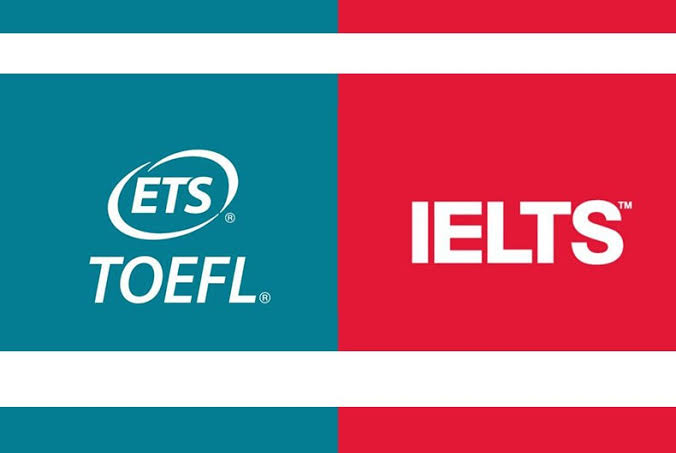
Canada is known for offering various high-paying job opportunities, even for those without a university degree. With the right skills, training, and experience, individuals can pursue rewarding careers in fields that do not require traditional post-secondary education.
Many industries in Canada are facing labor shortages and are actively seeking skilled workers, making it an ideal time for people to explore alternative career paths. Whether you’re interested in trades, technology, or business, there are plenty of well-paying jobs available for those who don’t hold a university degree.
In this article, we’ll explore some of the top high-paying jobs in Canada that don’t require a university degree, and offer insights into how you can start your career in these fields.
1. Construction Manager
Construction managers are responsible for overseeing construction projects, ensuring that everything runs smoothly, and managing teams of workers. This role typically requires experience in the construction industry, but a formal university education is not necessary. Many construction managers start their careers as laborers or tradespeople and work their way up to management roles through experience and additional training.
With strong demand for infrastructure development and real estate projects in Canada, construction managers can earn a significant income. The average salary for construction managers in Canada ranges from $70,000 to $120,000 per year, depending on experience and location.
2. Electrician
Electricians are highly skilled tradespeople responsible for installing, maintaining, and repairing electrical systems in residential, commercial, and industrial settings. Becoming an electrician typically involves completing an apprenticeship program, which combines on-the-job training with classroom instruction. These programs generally take about four to five years to complete, but no university degree is required.
Electricians are in high demand across Canada, with an average annual salary of around $60,000 to $90,000. Those who specialize in industrial or commercial electrical work may earn even more. Electricians also have the opportunity to start their own businesses, which can further increase their earning potential.
3. Plumber
Plumbers install, maintain, and repair plumbing systems, including water supply and drainage systems. Like electricians, plumbers are typically trained through apprenticeship programs that combine hands-on experience with classroom instruction. After completing the apprenticeship and becoming certified, plumbers can work independently or for larger construction companies.
The average salary for plumbers in Canada ranges from $50,000 to $80,000 per year. In some regions or for those with specialized skills, such as working on large commercial projects or high-rise buildings, the earning potential can be even higher.
4. Heavy Equipment Operator
Heavy equipment operators are responsible for operating machinery such as bulldozers, excavators, cranes, and other construction equipment. This job requires specialized training, often provided through vocational schools or on-the-job training programs, but it does not require a university degree.
Heavy equipment operators are in demand in Canada, especially in industries such as construction, mining, and forestry. The average annual salary for heavy equipment operators ranges from $55,000 to $85,000, with opportunities for overtime and bonuses in busy seasons or large-scale projects.
5. Real Estate Agent
Real estate agents help clients buy, sell, and rent properties. While a university degree is not required to become a real estate agent, individuals must complete a licensing course and pass a certification exam. Real estate agents work on a commission basis, earning a percentage of each property transaction they facilitate.
The income potential for real estate agents in Canada is highly variable, depending on factors such as location, the number of transactions completed, and market conditions. Successful agents can earn six-figure incomes, particularly in high-demand cities such as Toronto and Vancouver. On average, real estate agents earn between $50,000 and $100,000 per year, with top performers making considerably more.
6. Web Developer
Web developers are responsible for designing, coding, and maintaining websites and web applications. While some web developers have university degrees in computer science, many enter the field through self-study, coding boot camps, or diploma programs from vocational schools. Web development is a skill-based career, where employers and clients often prioritize experience and portfolio over formal education.
With the increasing demand for online services, e-commerce, and digital marketing, web developers are in high demand across Canada. The average salary for web developers ranges from $55,000 to $90,000 per year, with opportunities to work remotely or freelance for multiple clients, which can boost earnings even further.
7. Police Officer
Becoming a police officer in Canada does not require a university degree, though applicants must meet certain criteria, including completing a training program at a police academy. Police officers are responsible for maintaining public safety, enforcing laws, and protecting communities.
The average salary for police officers in Canada is between $60,000 and $100,000 per year, depending on experience, rank, and location. In addition to competitive salaries, police officers often receive benefits such as pensions, healthcare, and paid vacation time.
8. Elevator Mechanic
Elevator mechanics install, maintain, and repair elevators, escalators, and other automated lifting systems. This specialized trade requires completing an apprenticeship and obtaining certification, but it does not require a university degree. Elevator mechanics must be highly skilled in mechanics, electronics, and hydraulics.
Due to the technical nature of the work and the specialized skills required, elevator mechanics are among the highest-paid tradespeople in Canada. The average annual salary for elevator mechanics ranges from $80,000 to $120,000, with the potential for additional income through overtime and emergency repair work.
9. Firefighter
Firefighters play a crucial role in protecting communities by responding to emergencies, extinguishing fires, and providing rescue services. To become a firefighter in Canada, individuals must complete a firefighter training program, pass physical fitness tests, and meet other entry requirements, but a university degree is not required.
The average salary for firefighters in Canada ranges from $55,000 to $100,000 per year, depending on experience, rank, and location. Firefighters also typically receive comprehensive benefits, including pensions, healthcare, and paid time off.
10. HVAC Technician
HVAC (Heating, Ventilation, and Air Conditioning) technicians install, maintain, and repair heating and cooling systems in residential, commercial, and industrial buildings. Becoming an HVAC technician typically requires completing a vocational training program or apprenticeship, but no university degree is necessary.
The demand for HVAC technicians is consistently high, as heating and cooling systems are essential in both homes and businesses. The average salary for HVAC technicians in Canada ranges from $50,000 to $80,000 per year, with the potential for higher earnings in specialized areas such as commercial HVAC systems.
Conclusion
Canada offers numerous high-paying job opportunities for individuals without a university degree. Skilled trades, technology, and public service roles provide excellent earning potential, job security, and opportunities for career advancement. By pursuing vocational training, apprenticeships, or certification programs, you can enter a rewarding career path without the need for a traditional university education. Whether you’re interested in construction, web development, real estate, or public service, Canada’s diverse job market offers something for everyone, regardless of their educational background.






